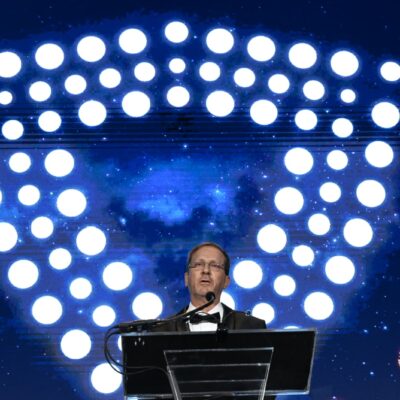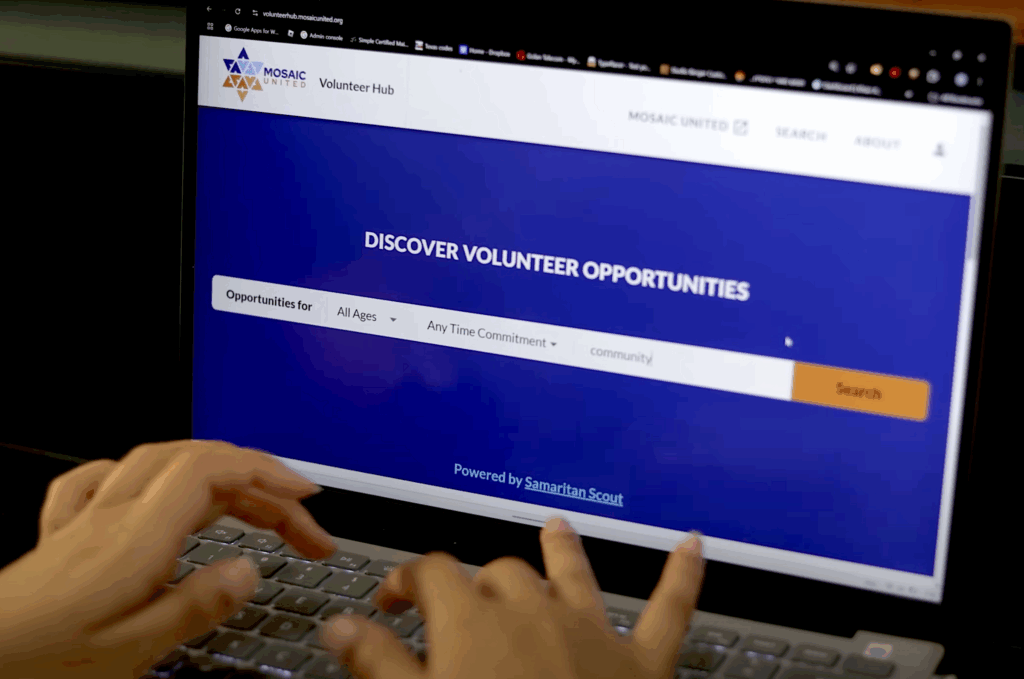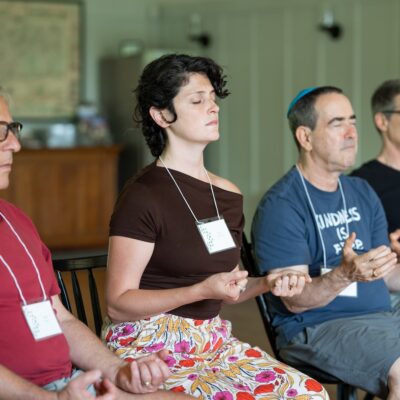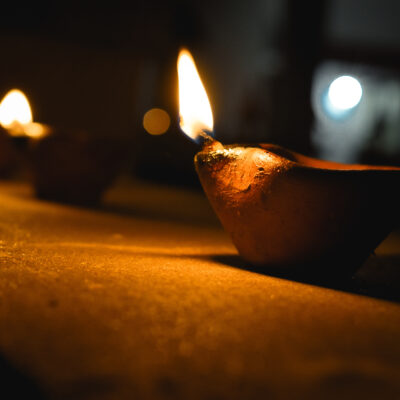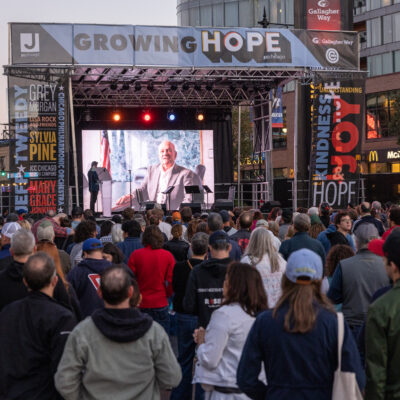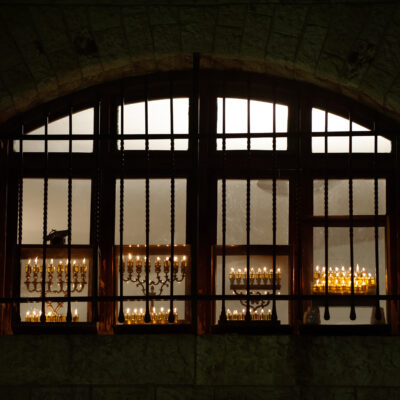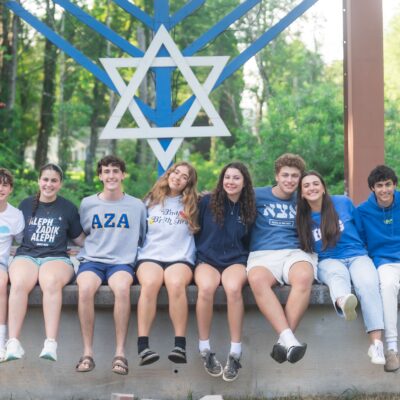250 YEARS LATER
Experts champion Jewish education as the key to thriving Jewish communities
Doyen of American Jewish history Jonathan Sarna says current moment of struggle is producing the next generation of leaders
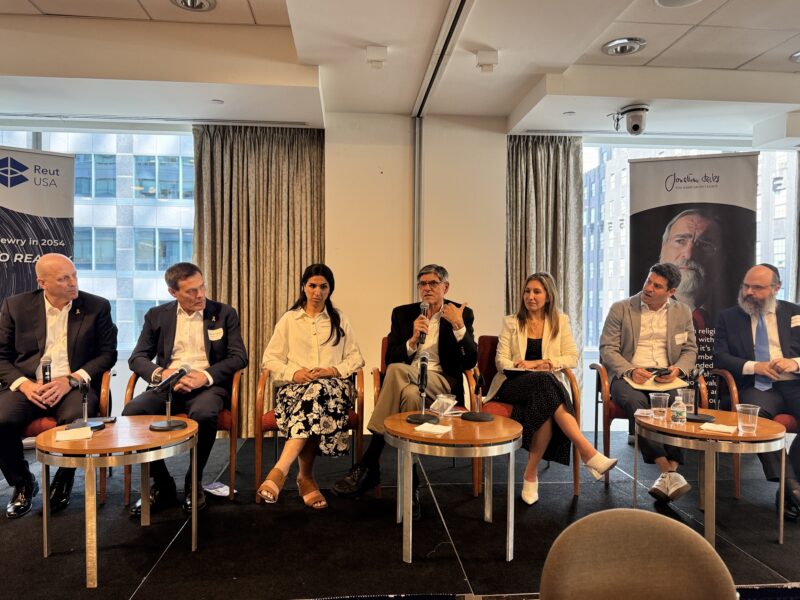
COURTESY
A panel at the 'The Great Diaspora: Visioning American Jewry at America’s 250th' conference, organized by Reut USA and the Rabbi Sacks Legacy, discuss the American Jewish future at UJA-Federation of New York headquarters on July 21, 2025.
Making Jewish education more accessible is the key to many of the challenges facing American Jews today, several Jewish leaders said on Monday at a conference on the future of American Jewry, held at the UJA-Federation headquarters in New York City.
Drawing inspiration from the teachings of the late Rabbi Lord Jonathan Sacks, some 100 rabbis, lay leaders, entrepreneurs and CEOs of Jewish organizations debated how to expand Jewish education — as well as a number of other issues facing American Jewry — at the daylong conference organized by Reut USA and The Rabbi Sacks Legacy.
“A greater threat even than the antisemites is our own well-being internally, our own loss of identity, our own distance from our history, values and knowledge from our texts,” Elan Carr, CEO of the Israeli-American Council and former U.S. special envoy for monitoring and combating antisemitism in the first Trump administration, told attendees.
Carr cited a Rabbi Sacks framework to address this: “To defend a country, you need an army. But to defend an identity, you need a school. Judaism is the religion of the book, not the sword,” the former British chief rabbi famously said.
The conference, titled “The Great Diaspora: Visioning American Jewry at America’s 250th,” was held as preparations are underway for the country’s 250th anniversary celebration next summer and American Jews are reflecting on the condition and direction of Jewish life in America for the coming generations.
The anniversary comes as American Jewry faces antisemitism at levels not seen in decades, record-high intermarriage and a volatile relationship with the State of Israel. While Jewish leaders largely agree that the solution is more Jewish education, some at the conference were divided over best approaches to make education accessible — ranging from tuition-free day schools to establishing more inclusive communities.
“We need to give our kids a Jewish education,” Carr said. “And we are pricing ourselves out of existence. This has to be fixed.” The average cost of Jewish day school tuition in New York falls between $20,000 to $35,000 per year.
Rabbi Marc Schneier, founder of the Hampton Synagogue in Westhampton Beach, N.Y., offered a solution to the high cost of Jewish day schools. Schneier announced that he is working on an initiative for tuition-free Jewish day schools, in what would be a network across the country of free Jewish schools in 25 communities, including Suffolk County, N.Y., where his congregation is based and where about 85,000 Jews live. Schneier did not provide details on which philanthropists would back the initiative.
But Ellen Finkelstein, CEO of Hadassah Women’s Zionist Organization of America, argued that finances are not “at the root of why every Jewish student in America does not have a Jewish education.”
“The reason that Jews in America don’t all put their children in Jewish day schools is because they don’t feel welcomed. I think for many Jews, it’s frightening to put their child in a day school where they may be judged based on their own level of religiosity or engagement. It’s a problem that we as a society need to address,” Finkelstein said.
In another panel, Jewish leaders, including former U.S. Ambassador to Israel Jack Lew, debated how to address major threats to the physical security of American Jewry, just months after the fatal shooting of two Israeli Embassy staffers in Washington and the firebombing of advocates at a march for Israeli hostages in Boulder, Colo.
The primary threats to American Jewish security, said Sapir Institute Director Chanan Weissman, are a wide gap on shared priorities, prevalence of conspiracy theories, distrust in institutions and success of the community misinterpreted as a privilege.
“The danger we face when thinking about national security is not per se a danger to Jews but a danger to America,” which stems from both the far left and the far right, said Mijal Bitton, community leader of Downtown Minyan, a congregation in Manhattan. “We as Jews are feeling our safety threatened, because America is being threatened.”
Bitton said it’s not appropriate for American Jews to “be only loyal to one [political] party. Instead, we have to call out extremes on the right and on the left.”
Dana Gibber, CEO of Flowcarbon, who helps run the pro-Israel political action committee NORPAC, offered a solution. It is “well past time that we have a Jewish political machine,” she said.”
The call comes against the backdrop of Zohran Mamdani’s victory in the New York City Democratic mayoral primary last month — a democratic socialist who has repeatedly declined to condemn the term “globalize the intifada,” defending it as an expression of Palestinian rights.
“Beyond fundraising, [it would mean] having a well-organized, well-orchestrated group of Jewish electorate leaders that is broken down by synagogues and community centers that has precincts and captains and organizes us as an electorate so we go out and vote when anything that is on the ballot is relevant to us, but in particular antisemitism,” said Gibber, who called the idea a “national security priority.”
Several of the conference’s panels referred to “Oct. 8 Jews,” a term used to describe Jews who reconnected with their Jewish roots in the aftermath of the Oct. 7 terrorist attacks in Israel. Studies commissioned by Jewish Federations of North America have documented “the Surge,” an uptick in engagement among previously unaffiliated Jews who are increasingly donating to Israeli and Jewish causes, joining synagogues, attending rallies and gathering regularly for Shabbat. In April, the uptick in Jewish engagement appeared to plateau — with a follow-up study finding that about a third of the respondents (31%) saying that they are engaging more with the Jewish community than they did in the past, compared to 42% who said so the year prior.
But speakers debated whether this trend will endure, as well as the unique challenges it poses to philanthropy and whether money is being spent in the right places.
“American Jewish philanthropy isn’t just larger in scale than previous diasporas. It’s different in kind. We don’t just support institutions, we create movements,” said Maimonides Fund President Mark Charendoff. “We don’t just respond to crises, we shape the future… acting as full partners in American society.”
“This unique position brings us unique responsibilities,” he said, referring to a question once posed by Rabbi Sacks: “Can a distinctive Jewish population survive in an open society?”
“The answer depends on whether we can understand that America doesn’t just offer us freedom, it offers us the opportunity to help define what freedom means for everyone,” Charendoff answered.
But such large-scale philanthropy is sometimes “taken way too far,” argued Zoya Raynes, chair of the Jewish Funders Network, which has mapped out the ecosystem of organizations focused on antisemitism in the U.S.
According to Raynes, there are over 160 nonprofits in the U.S. that are solely focused on combating antisemitism, which she argued is an indication of disorganization. “No one can look at the result and say we are doing a good job, nor can anyone look at this model and say it’s okay,” said Raynes, who is also a managing director at Bank of America. “If this is the moment of ‘what did you do when,’ someone will look back at this model and ask how we allowed it to exist.”
Jonathan Sarna, a prominent historian and retiring professor of American Jewry at Brandeis University, said “Oct. 8 Jews” are both unique to today and have also existed in every generation of American Jewry.
The future of American Jewry, Sarna said, largely depends on the group of influential young Jewish leaders on college campuses, many of whom did not expect to hold Jewish leadership roles but were thrust into them by the increase of antisemitism on campuses in the aftermath of Oct. 7. “When we look at those young Jews in the late 19th century who wanted to build up the American Jewish community, there’s much we can learn from them,” said Sarna. “They too were astonished at the development of antisemitism in the 1870s. Jews were expelled from clubs and institutions. The response of some Jews was not to run away but to create organizations.. The young people who were transformed by antisemitism, they continued to be Jewish leaders and transform American Jewish life.”
“We need to look at them as our Henrietta Szolds and Cyrus Adlers,” continued Sarna, referring to the founder of Hadassah and leader of Conservative Judaism, respectively. “We have a great opportunity in many ways. Our job is to empower those young Jewish leaders on campuses. They’re the future leadership. They’re the hope of the future of American Jewish unity.”

 Add EJP on Google
Add EJP on Google



